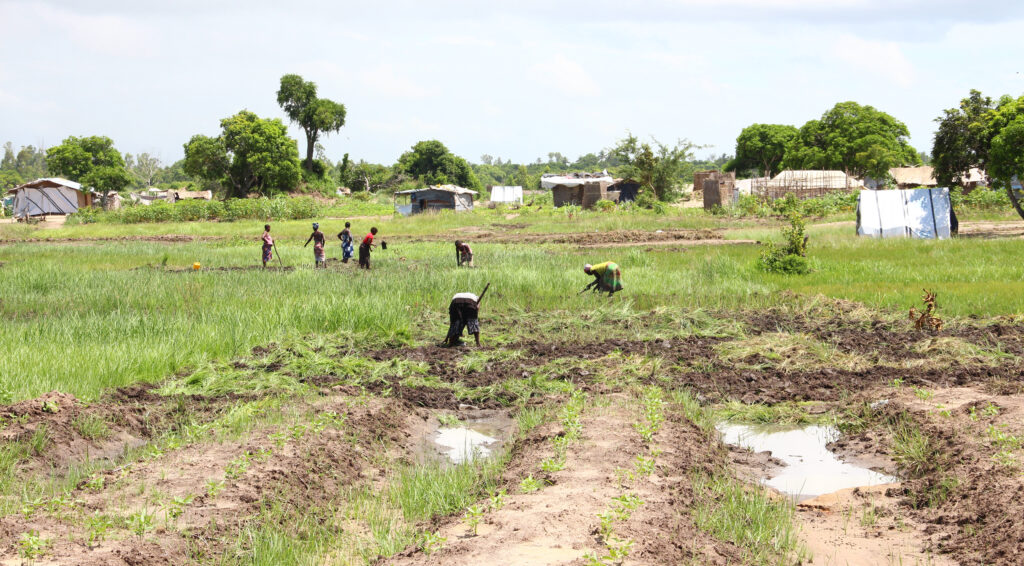
Crisis-ridden Mozambique is one of the poorest countries in the world. Although the country has contributed hardly anything to climate change, it is listed in the latest ‘Global Climate Risk Index’ as one of the countries on which climate change has inflicted the most damage. Mozambique is an example of how the countries least responsible for harmful emissions are often those most severely and directly affected by the consequences of climate change. This demonstrates the importance of concepts such as climate justice, which emphasize global injustice and a targeted consideration of the greater responsibility of industrialized nations.
As a result of higher sea temperatures and increased evaporation, cyclones on the coast of Mozambique are becoming more violent. The unprecedented severity of two cyclones, Idai and Kenet, in 2019, for example, turned more than 250,000 people into climate refugees. Their homes and fields were destroyed, and people, livestock were drowned. Some lessons in terms of social consequences and conflict can be learned from the emergency projects of terre des hommes schweiz (tdh) in this region. Paula Macave, coordinator of the tdh program in Mozambique, reports on the chaos that prevailed. Families were separated, and those affected lost everything in the floods, including their loved ones. People are still traumatized by the catastrophe that suddenly overtook them. At first, the overcrowded emergency shelters lacked everything (clean drinking water, enough food, and provision for hygiene and health). The government resettled the displaced people in new areas; in some cases, the places they came from are still classified as risk areas where people should not resettle, even after the destruction.
Even though many resettled were welcomed by many in a spirit of solidarity, forced relocations foster social tension. If something is stolen, for example, people are quick to suspect the newly resettled “have-nots” and those whose culture is perceived as “other” and who lack an established social fabric are often excluded. Therefore, a conflict-sensitive approach and social integration measures are essential to prevent such social conflicts.
tdh schweiz supports an agricultural project for the mitigation and adaption to climate change which works with the people who lost everything in the last disaster in Mozambique. They are being advised to plant fields at two different altitudes: A field at higher elevations to avoid flooding, with trees for shade, as it quickly becomes too arid higher up with the lack of rain; an additional field at a lower altitude, which is an essential strategy in the absence of rain. Both fields must be maintained at particular times, with the appropriate plant combinations, seeds, and methods (e.g., mulching).
Investment in such climate change mitigation projects is an important way of preventing social and other conflicts.